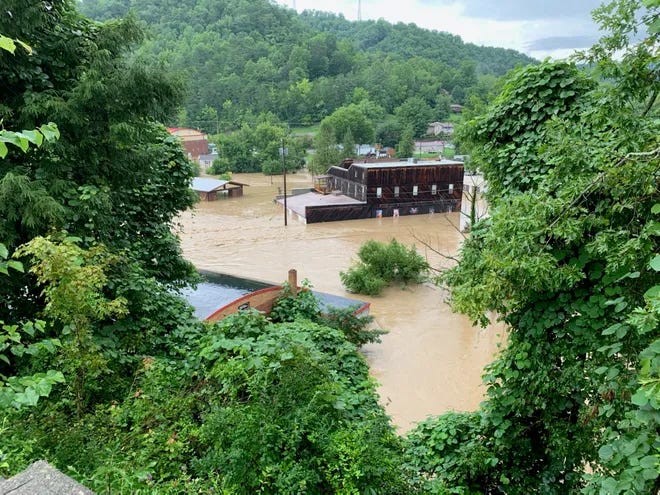Friday! August! Keeping my fingers crossed for cooler weather soon!
Here’s your resource roundup for the weekend. Have a great one, yall.
This is a fantastic op-ed about the floods in Kentucky by Mandi Fugate Sheffel, writer and the owner of Red Spotted Next, an indie bookstore in Hazard, KY.
We tell our story, not the narrative pushed by so many who visit from the outside. Is that what we have become, a place on the map that time and water can erase? With these documents gone, how will our children know the importance of who we are and what we have overcome? How do we move forward with a failing infrastructure that continues to become more and more fragile with every rising tide?
This is another great op-ed by Alex Gibson, Executive Director of Appalshop, which lost a significant portion of their archives to flooding.
There is no prize for being “right” about climate change, or about the fragile infrastructure in the mountains, or about years of lack of real, community-based investment in Appalachia. Unfortunately, Appalachia is the harbinger of the future if nothing is done about holding companies and officials accountable for the extractive, parasitic effect they have on communities like ours, and that future is bleak. While we count our dead and we salvage what we can, we must take action to make sure events like this don’t happen again. People’s lives literally depend on it.
I love Bartees Strange, and I’m loving this song this week.
White reporters, it’s time to share your bylines and co-report, via Scalawag. I also especially love this reflection on rurality in this piece:
More than half of Mississippians live in a rural area—one of the highest rates in the country. In the Blackest state in the nation, 39 percent of rural Mississippians are Black, contrasting oversimplified narratives awash in the news media that Black folks exclusively live in urban areas, and that Rural America—and often by association, the South—is mostly white. In the South, we know better, but we still struggle to understand the intersection of access to necessities, land and lineage, and connection.
Thinking through all this, I knew I wanted to focus a story on the misunderstood connection between isolation and loneliness—mostly to disrupt the narrative that they're one in the same. Where isolation is a physical separation, loneliness is an emotional and social one. Loneliness is not chosen, but those of us in rural areas often choose to be isolated—geographically, anyway. Still, we form powerful, often spiritual, connections with not only each other, but the land itself.





